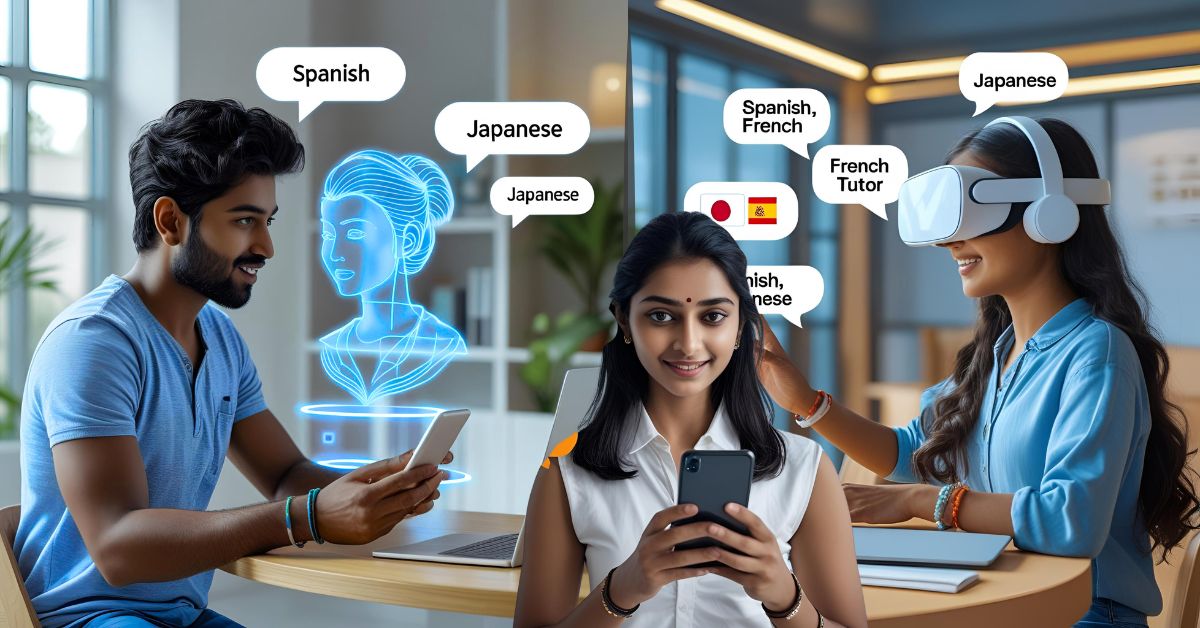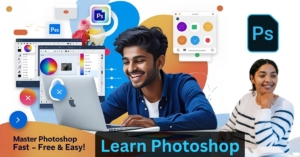Remember when learning a language meant dusty textbooks and awkward classroom drills? Not anymore. In 2025, the best language apps turn fluency into something as effortless and addictive as scrolling through your favorite social feed.
Learning a language shouldn’t feel like homework. In 2025, these beginner-friendly apps will turn fluency into a fun, effortless habit.
Why 2025 Is the Best Year to Start Learning a Language
For years, language learners were stuck with flashcards, textbooks, and awkward classroom drills. But in 2025, that’s changing fast. Thanks to AI-powered tutors and hyper-accurate voice recognition, beginners can now practice speaking with real-time feedback: no teacher required.

Gamification is also reaching new heights. Inspired by the addictive mechanics of social media platforms like TikTok, today’s apps reward consistency with streaks, badges, and even mini-games. It’s no longer about studying harder: it’s about staying engaged longer.
And the results? A recent study found that users who stick with modern language apps progress three times faster than those relying on traditional methods. That means you could go from basic greetings to confident conversations in record time: all from your phone.
Top 5 Language Learning Apps for Beginners in 2025

- LinguaHOuse: This AI powerhouse analyzes your Netflix history and crafts lessons around shows you have already binge. Learning Italian? It’ll pull dialogue from The White Lotus and turn it into interactive quizzes.
- Speakly 3.0 : Struggling with accents? Its voice coach listens like a native speaker, pinpointing subtle flaws (like rolling your French R’s) and drilling them until they stick.
- Memrise VR: Why just memorize words when you can barter in a virtual Mexican mercado? This app drops you into immersive 3D environments where real conversations happen.
- Drops Junior: Not just for kids! Visual learners get a slick, image-based system that makes recalling words as easy as recognizing emojis.
- Pimsleur Go: The 2025 update includes “sleep learning” mode, where gentle audio lessons reinforce vocabulary during light sleep phases, backed by recent Stanford research.
How to Pick the Right App for Your Goals
Not every app suits every learner, and your reason for learning matters more than you think.
- Traveling soon? Go for apps that offer live native speaker interactions or video chats. HelloTalk and Tandem are traveler favorites.
- Learning for work? Business-focused tools like Babbel Professional teach industry-specific jargon and cultural etiquette.
- Struggle with focus? If you have ADHD or just a hectic schedule, micro-lesson apps like Duolingo Snap keep sessions under five minutes without sacrificing results.
Choosing the right fit means aligning features with your lifestyle, not forcing yourself into a one-size-fits-all approach.
Free vs. Paid Apps: What’s Actually Worth It?
Free apps are great for dipping your toe in the water. But they often come with limitations: think limited phrases, locked features, and constant ads that break your flow. If you’re serious about progress, going premium might be your best bet.
Paid versions unlock offline access, personalized tutoring, and deeper analytics. For example, Speakly 3.0’s premium tier gives you unlimited voice coaching sessions, while Memrise VR’s paid plan includes exclusive virtual locations and advanced immersion scenarios.
Reddit’s 2025 poll revealed that 72% of users felt the investment was worth it after three months. When you consider how quickly these tools accelerate learning, paying for premium access could actually save time and frustration in the long run.
Latest post: You Won’t Believe How Fast You Can Learn Photoshop for Free: No Experience Needed!
The Future of Language Learning (Beyond 2025)
Imagine slipping on a headset and waking up fluent. That’s the goal of brain-computer interfaces currently in beta testing in Japan, where gentle electrical pulses reinforce vocabulary during sleep.
Meanwhile, Meta’s “AI Language Pods” (launching in 2026) will project holographic conversation partners into your living room. Experts predict that by 2030, 30-day fluency will be the norm, no classrooms required.Ready to ditch the phrasebook and join the 2025 language revolution? Comment your dream language below and tag a friend who’s always saying, “I should learn Spanish!” Your future fluent self will thank you.
















